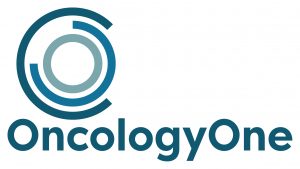Posted 29 August 2021

BioMelbourne Network member Oncology One has announced a new partnership with Children’s Cancer Institute to develop new drugs for the treatment of childhood solid tumours.
The partnership is focused on the development of novel small molecule drugs to treat neuroblastoma, a type of tumour that forms in the adrenal glands (above the kidney), or near the spine, chest, neck, or pelvis.
The chance of a child developing neuroblastoma is approximately 1 in 100,000 and it is the most prevalent extracranial solid tumour in children under five years old.
Neuroblastoma is a serious condition with limited effective treatment options and accounts for 15% of all childhood cancer deaths in Australia. There is an urgent and unmet need for improved therapeutics to treat this cancer.
The project will be run in collaboration with Children’s Cancer Institute’s new childhood disease-focused drug discovery initiative, THerapeutic INnovations for Kids (THINK), and the project is based on the research of Associate Professor Tao Liu, head of the Gene Dysregulation Group also based at the Institute.
Associate Professor Tao Liu’s work has identified a novel protein target that drives tumour growth and is a critical regulator of gene expression in neuroblastoma. The collaboration will initially seek to identify small molecule compounds that inhibit the tumour-driving biological activity of the target. This work involves the screening of hundreds of thousands of compounds using specialised assays developed specifically for this novel target.
Oncology One CEO, Dr Joanne Boag, said: “There is a real lack of funding in Australia to undertake the translational work we are doing in partnership with Children’s Cancer Institute. We are really excited to be working with them on this project, the next step in building on their quality research outcomes towards potential new therapies.”
If successful, further work will be needed to develop these compounds towards a ‘lead candidate’ and then a ‘clinical candidate’ that would become an investigational new drug and enter clinical trials.
Chair of the Oncology One Scientific Advisory Board, Dr Ian Street, said: “This project, if successful could dramatically improve treatment outcomes for children with neuroblastoma, and potentially other paediatric and adult cancers as well. This is an early-stage drug discovery project, the first step in the journey of translating a “great Idea” from fundamental research into a new drug for treating patients. This gap is often referred to as the “valley of death” and many commercial investors shy away from early-stage projects. At Oncology One we refer to it as the “Valley of Opportunity” and have developed a unique commercial strategy to partner with research institutions to move these opportunities forward.”
Children’s Cancer Institute Executive Director, Professor Michelle Haber AM, said: “We are delighted to be partnering with Oncology One to translate our research from target discovery to drug development. At Children’s Cancer Institute, we are passionate about curing childhood cancer. Cancer kills three children every week in Australia, and of those who survive, 70% will suffer long-term side effects from their non-targeted and aggressive treatments. There is therefore a clear unmet need for new targeted therapies to be specifically designed to treat childhood cancers, and we look forward to working towards this goal with Oncology One.”
To learn more about investment or partnership opportunities with Oncology One, visit www.oncologyone.com.au



